Zakhidnyi Information Front’s journalist, Ihor Antoshchak, experiences additional stress when he worries about unfinished material due to a power outage because, despite everything, his newspaper must be published on time. For Zaporizhzhia journalist from Novyny Pryazoviya Valeriya Kostiantynova, a blackout almost disrupted the recording of experts for her show because, in case of a blackout, it would have been impossible to do it at all. And the list of such stories can be continued. To help media professionals not interrupt the work process and to convey information to readers, viewers, and listeners in a timely manner during blackouts, all necessary conditions have been created in the JSCs coworking spaces, initiated and organized by the National Union of Journalists of Ukraine (NUJU) with the support of international partners – the International and European Federations of Journalists and the UNESCO headquarters. JSCs are constantly prepared for blackouts.
Today, a notepad and a pen for a journalist are only auxiliary tools. Without the Internet, computers, and other gadgets, media work is practically impossible. And all this requires electricity. The problem has become especially acute for newsrooms that work remotely due to hostilities and journalists who were forced to evacuate from dangerous areas.
Journalists’ Solidarity Centers of the NUJU operate in Kyiv, Lviv (with a point of presence in Chernivtsi), Ivano-Frankivsk, Kharkiv, Zaporizhzhia, and Dnipro. Each Center is equipped with everything necessary: workplaces with computer equipment, high-speed Internet, and powerful generators, which were provided by UNESCO headquarters at the end of 2022. Subsequently, international donors provided each Center with charging stations, which allows journalists to support the operation of their gadgets.
“When you come to a place where people with the same difficulties work and understand you, you realize that you are not alone in this world. It is hard for everyone, but somehow, it is easier when you can come, communicate, and, of course, get the job done. This helps not only to work but also to keep morally,” notes Ivan Mahuriak, a journalist from the analytical department of Channel 24.
Generators are always ready to work
Reliable power supply has become a critical challenge for Ukrainian media since the beginning of the full-scale invasion. Thanks to UNESCO support, at the end of 2022, the NUJU received 17 powerful generators – some for media newsrooms some for the JSCs.
“We were happy to receive a generator from UNESCO. After the test run, we were convinced – it works perfectly! Now we can guarantee media workers the opportunity to work and hold events in any energy conditions,” says Valentyna Manzhura, the coordinator of the Zaporizhzhia JSC.
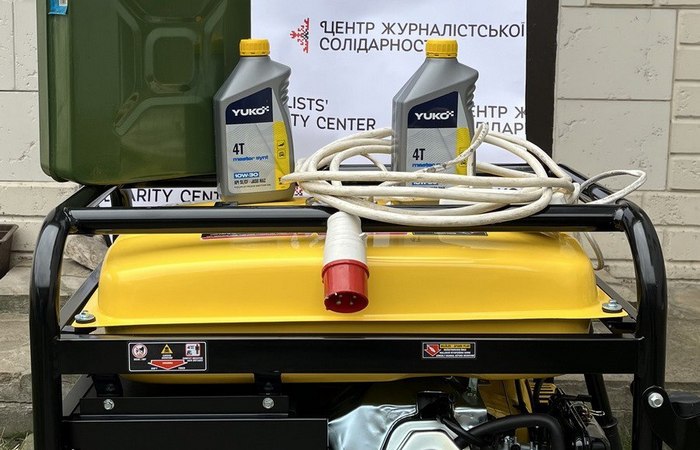
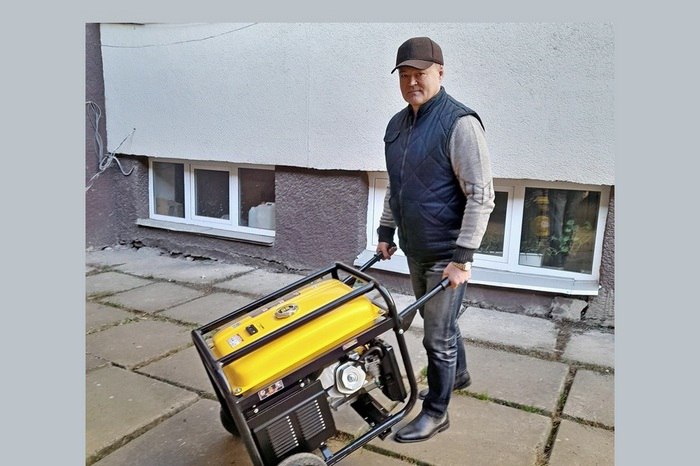
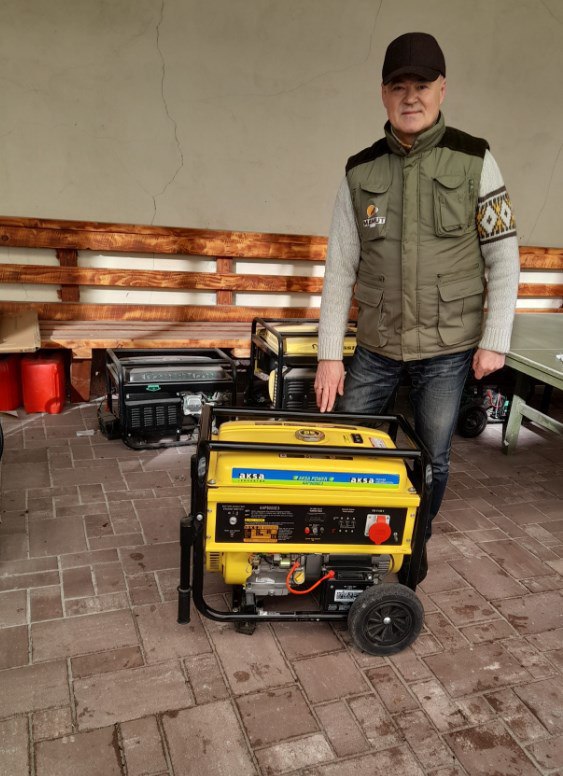
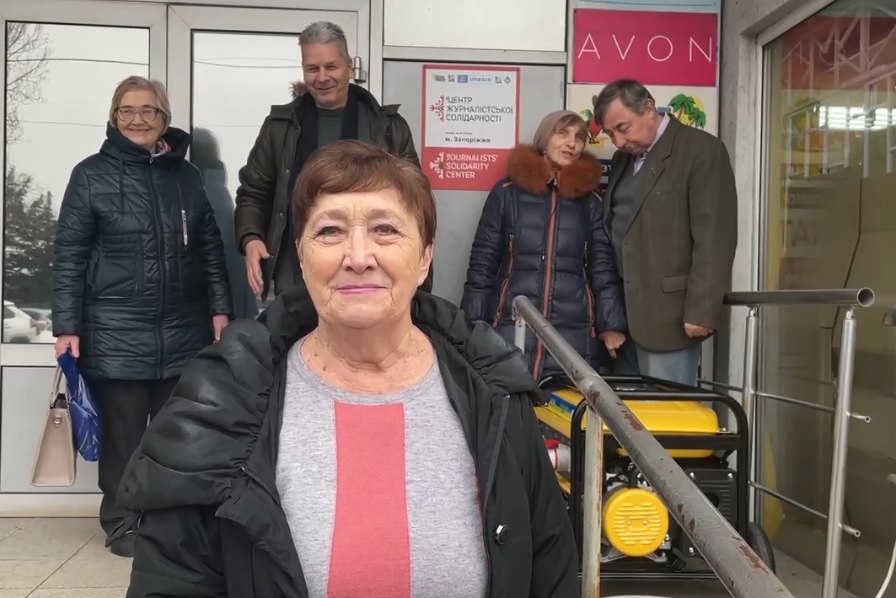
A real “point of invincibility” has been created in Dnipro for journalists. “Most newsrooms in the central part of the city face regular power outages. Thanks to the generator, our colleagues can work, charge their gadgets, and hold meetings. Energy independence has opened up new opportunities for our Center,” emphasizes Oleksii Kovalchuk, the board chairperson of the Dnipropetrovsk regional organization of the NUJU.
Each Center takes care of its equipment – they conduct regular preventive inspections, especially before the start of the winter season. Even in relatively safe Chernivtsi, where the point of presence of the Western Ukrainian JSC operates, a full-fledged coworking space for ten workplaces with constant Internet and backup power has been created.
“We offer colleagues not only technical support. In the heat, a cool room, always a friendly atmosphere, and even a mini-museum in the coworking space,” shares Hanna Chernenko, the coordinator of the Kharkiv Center.
The atmosphere of journalistic solidarity itself is of particular value, as media professionals note that working together is easier and more efficient. The Centers have become not just workspaces but real Centers of professional mutual assistance.
During blackouts, JSC coworking spaces are especially in demand
A power outage does not relieve journalists of deadlines and responsibilities. At such moments, the JSCs’ coworking spaces resemble hives – someone is collecting material, and others are transcribing recordings or working with documents. And everyone has a place and the necessary support.
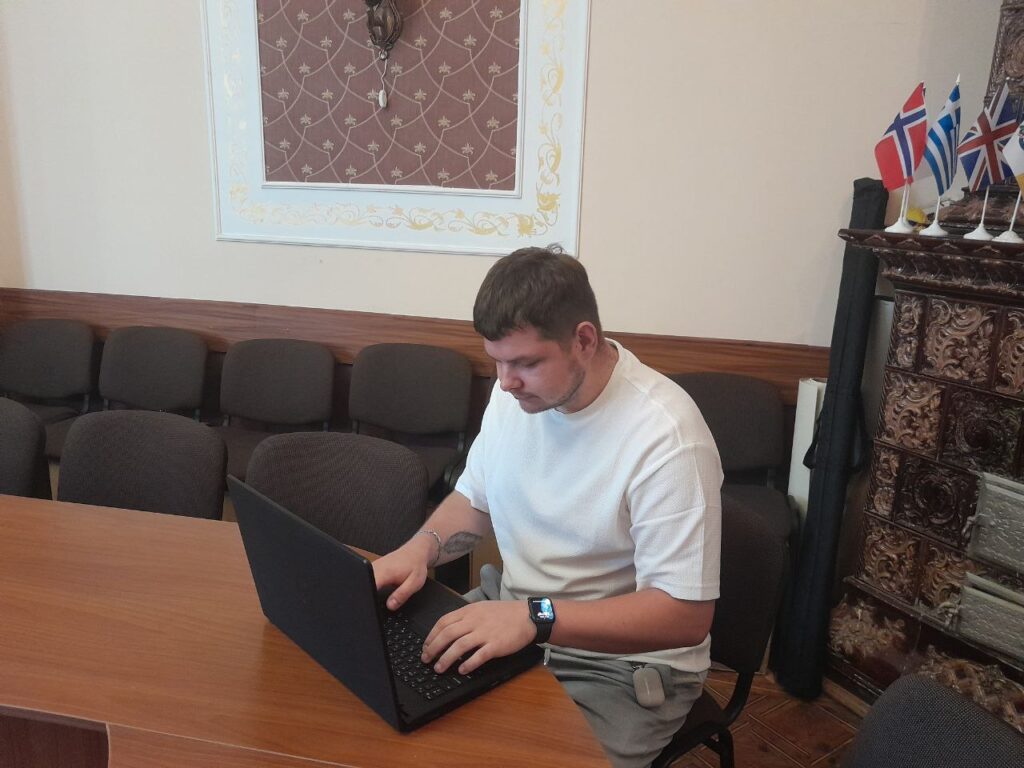
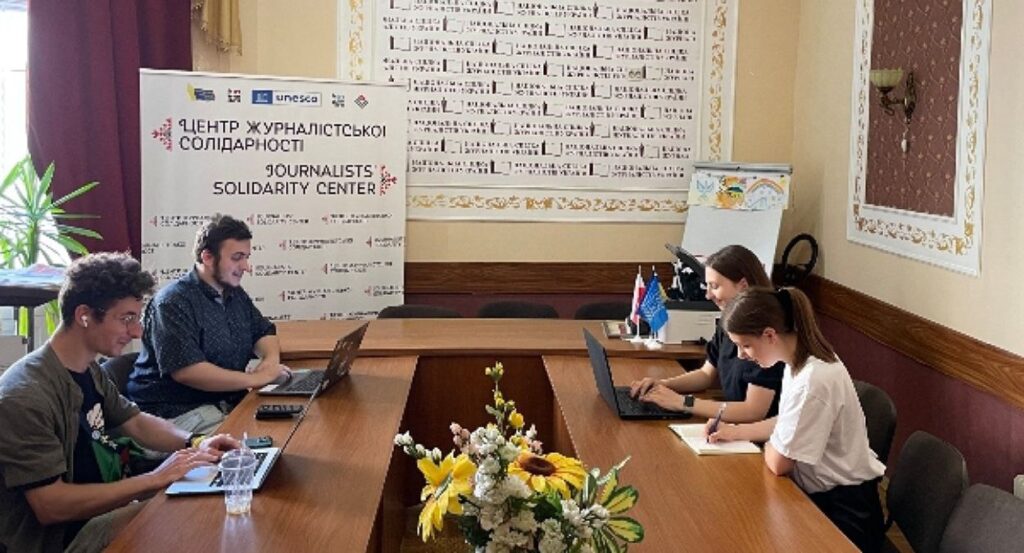
Uninterrupted Internet is provided by Starlink platforms received from international partners. “Centers have become a reliable refuge for many journalists, including displaced people. The NUJU is grateful for the support of Starlinks from the Fondation Hirondelle and IRMI [Institute for Regional Media and Information] within the framework of the project ‘Enhancing the Resilience of Ukrainian Media,’ funded by Swiss Solidarity,” notes Illia Suzdaliev, the coordinator of the Kyiv Center.
In Lviv, not only electricity but also mobile communication often goes out during blackouts. “This makes it difficult to work on the news feed. But the JSC always helps out – there is both electricity and Internet there. Coordinator Nataliya Voitovych creates a truly friendly atmosphere. Thanks to the Center, our readers receive news on time,” says Vholos journalist Pavlo Dak.
“The coworking space did save me when I was in a hurry when the power was out in the office. Fortunately, the JSC is a five-minute walk away,” says a journalist for the Western Information Front, Ihor Antoshchak.
For the editor of TrybunaL Nataliya Prots, the Center was the perfect solution: “It is critically important for journalists to stay in the flow of information. It is convenient to work here in every sense.”
Zaporizhzhia JSC offers a full range of services – from powerful computers to coffee and snacks. “When I found out about the power outage at home, I immediately contacted the Center. Coordinators Nataliya Kuzmenko and Valentyna Manzhura promptly helped. The conditions are even better than at home – all the necessary equipment is at hand,” says journalist Olha Bohlevska.
Every month, the Zaporizhzhia coworking space hosts 50-60 local journalists and media workers-migrants. “We always try to help our colleagues. Recently, Valeriya Kostiantynova from Novyny Pryazoviya needed a place to record experts – we immediately provided her with full technical support,” says co-coordinator Valentyna Manzhura.
“That day, according to the schedule, I had no electricity, and I had to record experts. The Center really helped me out,” confirms Valeriya Kostiantynova.
“Independence is very important for a journalist. Our media workers are now independent even from electricity problems, which have become systematic. We thank the NUJU and international partners for their support in a difficult time,” concludes Anatolii Isak, a board member of the Chernivtsi organization of the NUJU.
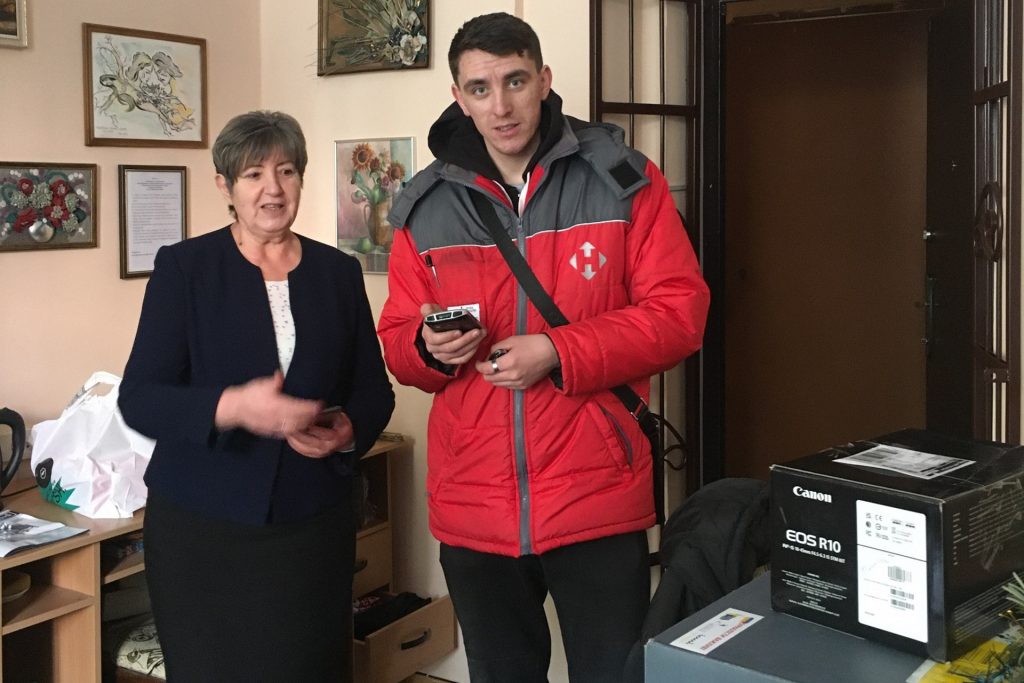
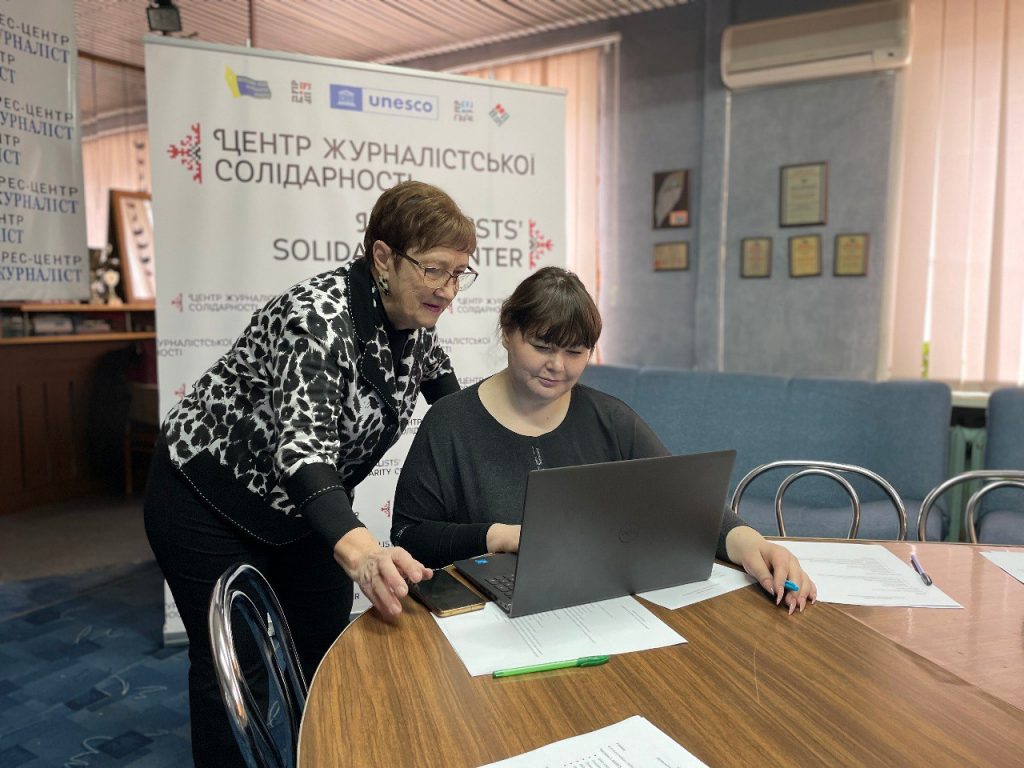
Workplaces with uninterrupted Internet – a godsend for media workers
The JSCs have become popular hubs for media workers from the very beginning, and not only during blackouts. Here you can quickly prepare material when the newsroom is far away, or it is impossible to reach it due to shelling. Every month, the Zaporizhzhia coworking space alone hosts 50-60 journalists, including displaced persons.
The Lviv Center is conveniently located where important events take place every day. “Journalists can come to us right after a press conference or briefing, write a story, and send it to the newsroom. We also always have space for freelancers and foreign colleagues who come to cover the war in Ukraine,” says Nataliya Voitovych, the coordinator of the Western Ukrainian JSC.
“Sometimes it’s hard to concentrate on work at home. There are always people at the Center, and you can exchange ideas. This is not just a free coworking space – it’s a place where you get both technical and moral support. They will always understand you here, plus it’s located in the very Center of the city,” shares Nazarii Lazur, the editor of the 24 Channel.
The Centers also come in handy when traveling. For example, the director of the Bilopilshchyna media center, Nataliya Kalinichenko, returning from training to the front-line Bilopillia, Sumy Region, was able to work and charge her equipment at the Ivano-Frankivsk JSC before the night journey home.
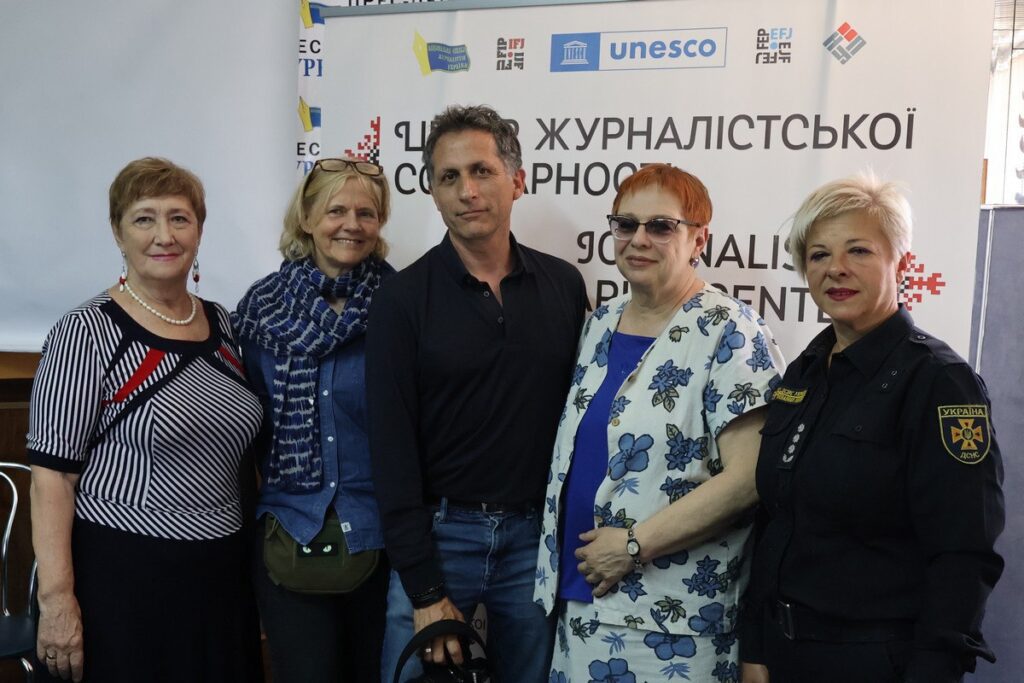
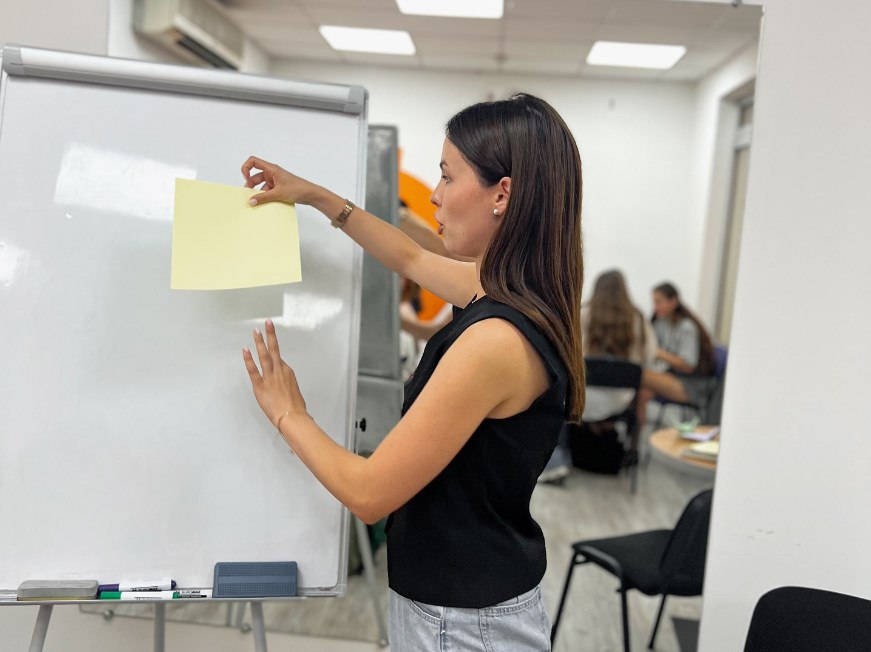
Foreign journalists come to communicate and work
The JSCs in front-line cities have become important locations for foreign correspondents. Media workers from the United States, Poland, Italy, Spain, and Germany regularly visit the Zaporizhzhia JSC – both for professional work and for informal communication with Ukrainian colleagues.
July 2024 turned out to be especially fruitful when a powerful international team visited the Zaporizhzhia Center: columnist Florence Aubenas of the French Le Monde, correspondent of the German radio Tatjana Ohm, and journalists of the Dutch public broadcaster NOS Alex Van Hcog and Martyn Pet.
At the Center, they interviewed displaced journalists – Alla Shamrai, a correspondent for the radio station Na Dotyk from Enerhodar, and Ivan Kushnirenko, an editor of a newspaper from Huliaipole.
“This communication turned out to be extremely informative. Alla‘s stories about the situation around the Zaporizhzhia NPP, about the lives of the residents of Enerhodar and those who remain under occupation were especially valuable. We tell our readers about your struggle for freedom and wish you victory!” shared Florence Aubenas‘s impressions.
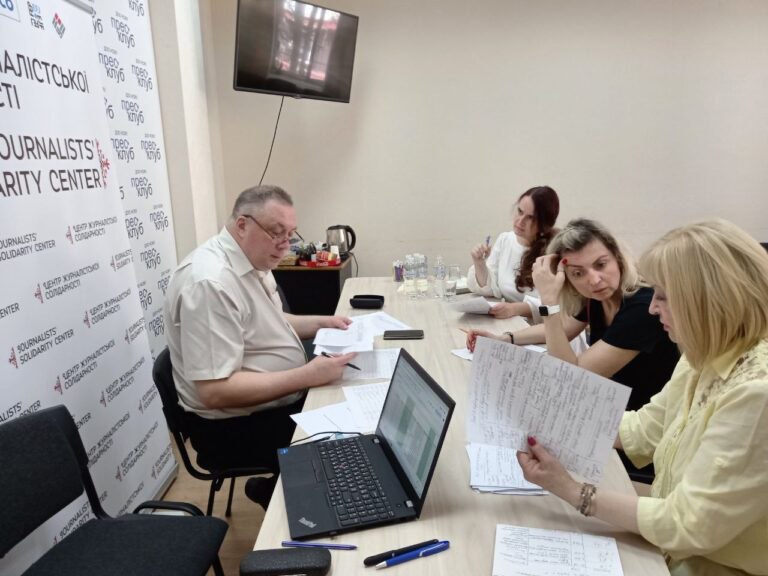
Professional support as a priority
The activities of coworking spaces are under constant attention of the NUJU leadership. In conditions when the JSCs often become the only available workspaces for media workers, it is important to ensure their most comfortable working conditions.
“I urge journalists and editors not to abandon the profession despite all the difficulties of wartime. The mission of journalism today is extremely important for Ukrainian society. The NUJU, as the largest professional association of media workers, will continue to attract the support of international partners and organizations. We must make the most of the global solidarity with Ukrainian media that has formed in the world,” emphasizes NUJU President Sergiy Tomilenko.
The Union maintains constant contact with Centers’ coordinators, promptly responding to their needs and requests. Coworking spaces have become more than just a technical solution to wartime problems – they demonstrate the importance of professional journalism and its key role in providing society with verified information.
How to find JSCs?
The Centers are always open on weekdays. But it is better to call the coordinators in advance to agree on a convenient time for you. The Centers are located at the following addresses:
- in Kyiv – 27A Khreshchatyk Street, : 050 680 52 04 (Illia Suzdaliev);
- in Lviv – 5 Solomiyi Krushelnytskoyi Street, 2nd floor; : 097 907 97 02 (Nataliya Voitovych); point of presence in Chernivtsi – 96 Nezalezhnosti Avenue, Tel.: 068 286 37 06 (Volodymyr Bober);
- in Ivano-Frankivsk – 25 Sichovykh Striltsiv Street; : 066 677 07 26 (Viktoriya Plakhta);
- in Zaporizhzhia – 152 Sobornyi Avenue, : 096 277 53 52 (Nataliya Kuzmenko, Valentyna Manzhura);
- in Dnipro – 8 Starokozatska Street; : 050 919 84 79 (Nataliya Nazarova);
- in Kharkiv – : 095 421 5477 (Hanna Chernenko).
ABOUT UNESCO
UNESCO is the United Nations Educational, Scientific, and Cultural Organization. It contributes to peace and security by promoting international cooperation in education, sciences, culture, communication, and information. UNESCO promotes knowledge sharing and the free flow of ideas to accelerate mutual understanding. It is the coordinator of the UN Action Plan on the Safety of Journalists and the Issue of Impunity, which aims to create a free and safe environment for journalists and media workers, thus strengthening peace, democracy, and sustainable development worldwide. UNESCO is working closely with its partner organizations in Ukraine to provide support to journalists on the ground.
The designations employed and the presentation of material throughout this digest do not imply the expression of any opinion whatsoever on the part of UNESCO concerning the legal status of any country, territory, city, or area or its authorities or concerning the delimitation of its frontiers or boundaries.
The authors are responsible for the choice and the presentation of the facts contained in this digest and for the opinions expressed therein, which are not necessarily those of UNESCO and do not commit to the organization.
NUJU Information Service

 THE NATIONAL UNION OF
JOURNALISTS OF UKRAINE
THE NATIONAL UNION OF
JOURNALISTS OF UKRAINE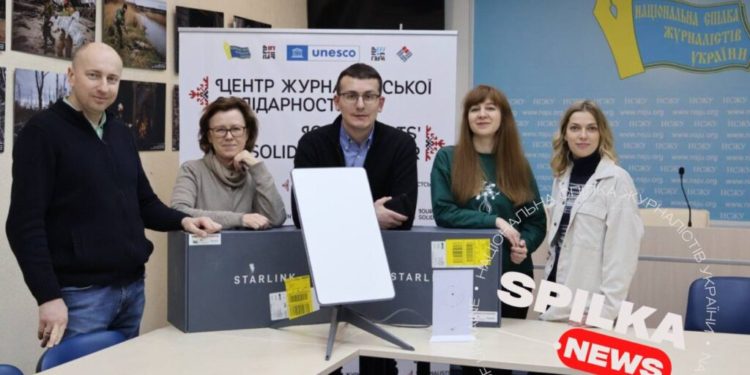


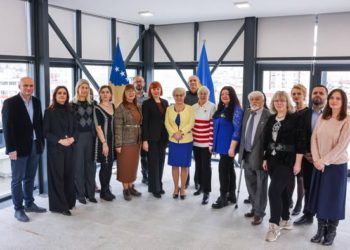













Discussion about this post